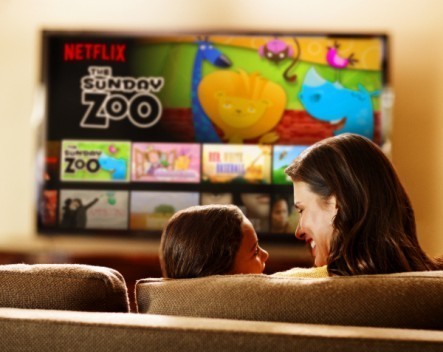
Last week was significant for the media industry, with a hiccup in the launch of Apple Music resolved and Netflix demonstrating that providing customers with what they want trumps government legislation defending traditional, restricted practices. The media companies arguing that it is only Apple and Netflix that will gain from the new order rings slightly hollow when you consider that they could have done all of this themselves a long time ago.
Apple keeps Taylor Swift happy after she lectures them on music economics
This week saw a major backdown by Apple over its decision not to pay music companies and artists during their planned three month free trial of Apple Music. The reversal is credited to a blog post written by Taylor Swift on Tumblr in which she explains why she was pulling her album, “1989”, off the Apple Music service.
This was not about her, she explained, but “about the new artist or band that has just released their first single and will not be paid for its success. This is about the young songwriter who just got his or her first cut and thought that the royalties from that would get them out of debt.”
It is not clear from Apple’s change of heart whether they were more swayed by Swift’s pulling of her album or the possibility of what must be a tiny number of people being seriously impacted by not having revenues that they wouldn’t have earned if Apple wasn’t launching this service.
Irrespective of whether Apple didn’t understand the logic in the argument either, keeping Taylor Swift happy was probably worth paying a premium for, if for no other reason than to distinguish themselves from Spotify, who couldn’t manage to keep her happy.
Australia keeps media companies happy by introducing ineffective site blocking legislation
In more media news, the power of media companies was felt in Australia, where the government passed an amendment to the Copyright Act, which will allow rights holders to seek to block websites that are deemed to be pirating their content.
Critics have pointed out numerous problems with the bill, with the primary issue being that it is trivial to circumvent using a VPN connection. As detailed before in response to Voltage Pictures’ action over the illegal downloading of the Dallas Buyers Club movie, VPN technology is being increasingly adopted to mask BitTorrent downloads and so generally will get around any blocks that the internet service provider puts in place.
Interestingly, VPNs are also increasingly popular to gain access to US content on services that a user is actually paying for, especially Netflix.
The weakness of the government’s move has led people to consider whether they will allow the blocking of companies that provide VPN services, and even block VPN itself. But Australian Communications Minister Malcolm Turnbull has stated that VPN has legitimate uses and there were no plans to block this type of service.
Netflix keeps consumers happy by actually giving them what they want
Another element to the “locking the stable door after the horse has bolted” Australian Government legislation, was the report that Netflix had signed up over 1 million users in Australia since its launch April this year. This compares to the 300,000 users of all of its rivals combined.
If proof were needed that Australians (and indeed consumers globally) would actually pay for content if it was provided in a convenient and affordable way, this has to be it.
There is still a disparity between the content provided in Australia compared to the US, but this is likely to diminish over time as Netflix renegotiates global distribution rights.
Until then, there is always the option of paying for Netflix and using a VPN.
![]()
David Glance is Director of UWA Centre for Software Practice at University of Western Australia.
This article was originally published on The Conversation. Read the original article.


COMMENTS
SmartCompany is committed to hosting lively discussions. Help us keep the conversation useful, interesting and welcoming. We aim to publish comments quickly in the interest of promoting robust conversation, but we’re a small team and we deploy filters to protect against legal risk. Occasionally your comment may be held up while it is being reviewed, but we’re working as fast as we can to keep the conversation rolling.
The SmartCompany comment section is members-only content. Please subscribe to leave a comment.
The SmartCompany comment section is members-only content. Please login to leave a comment.